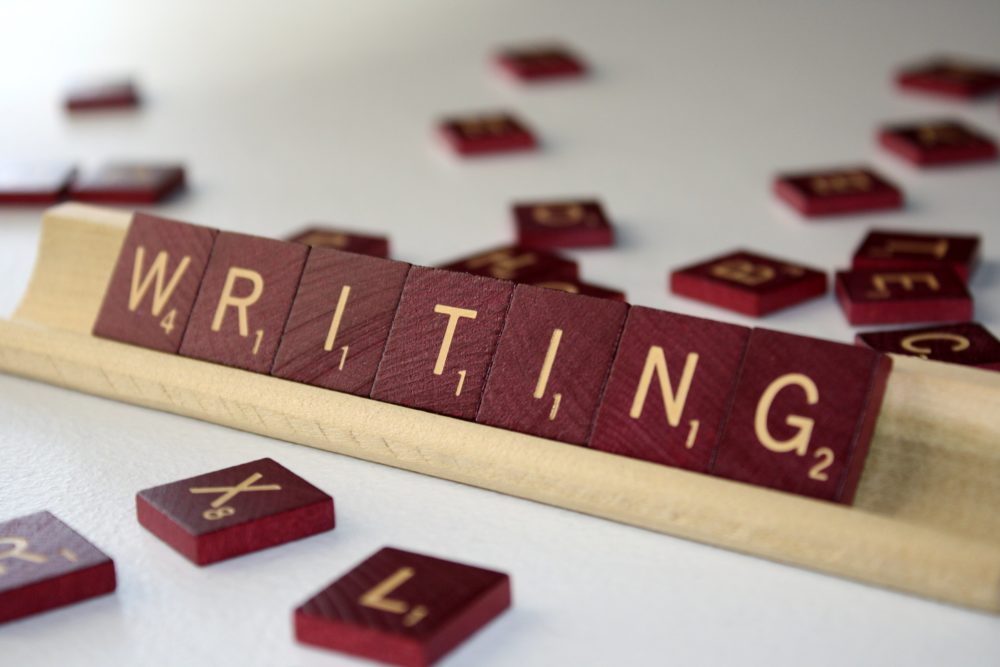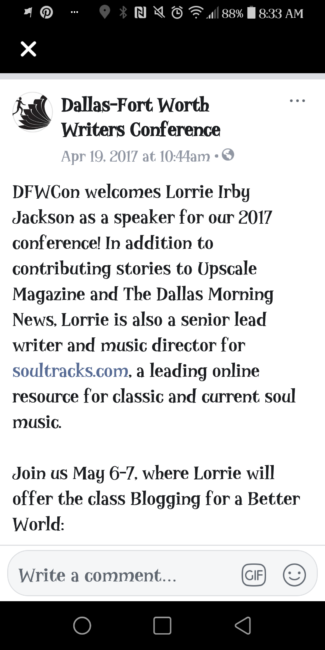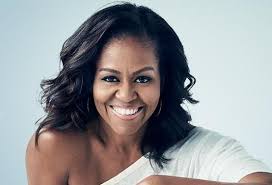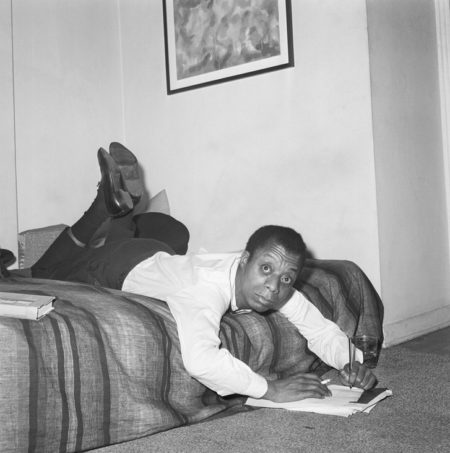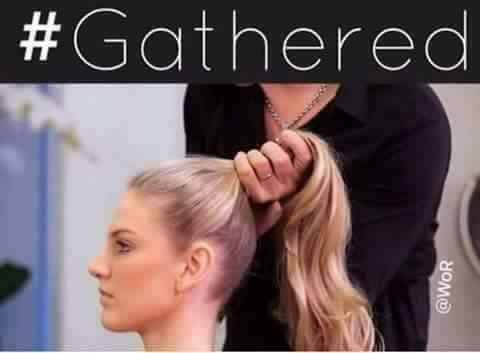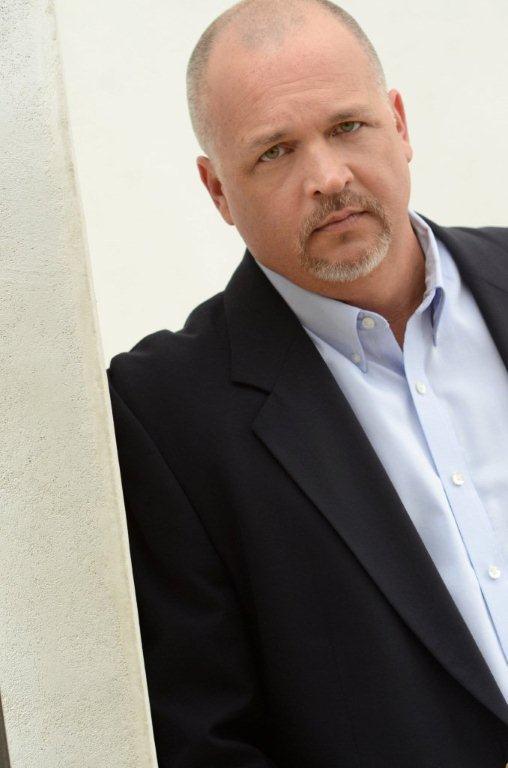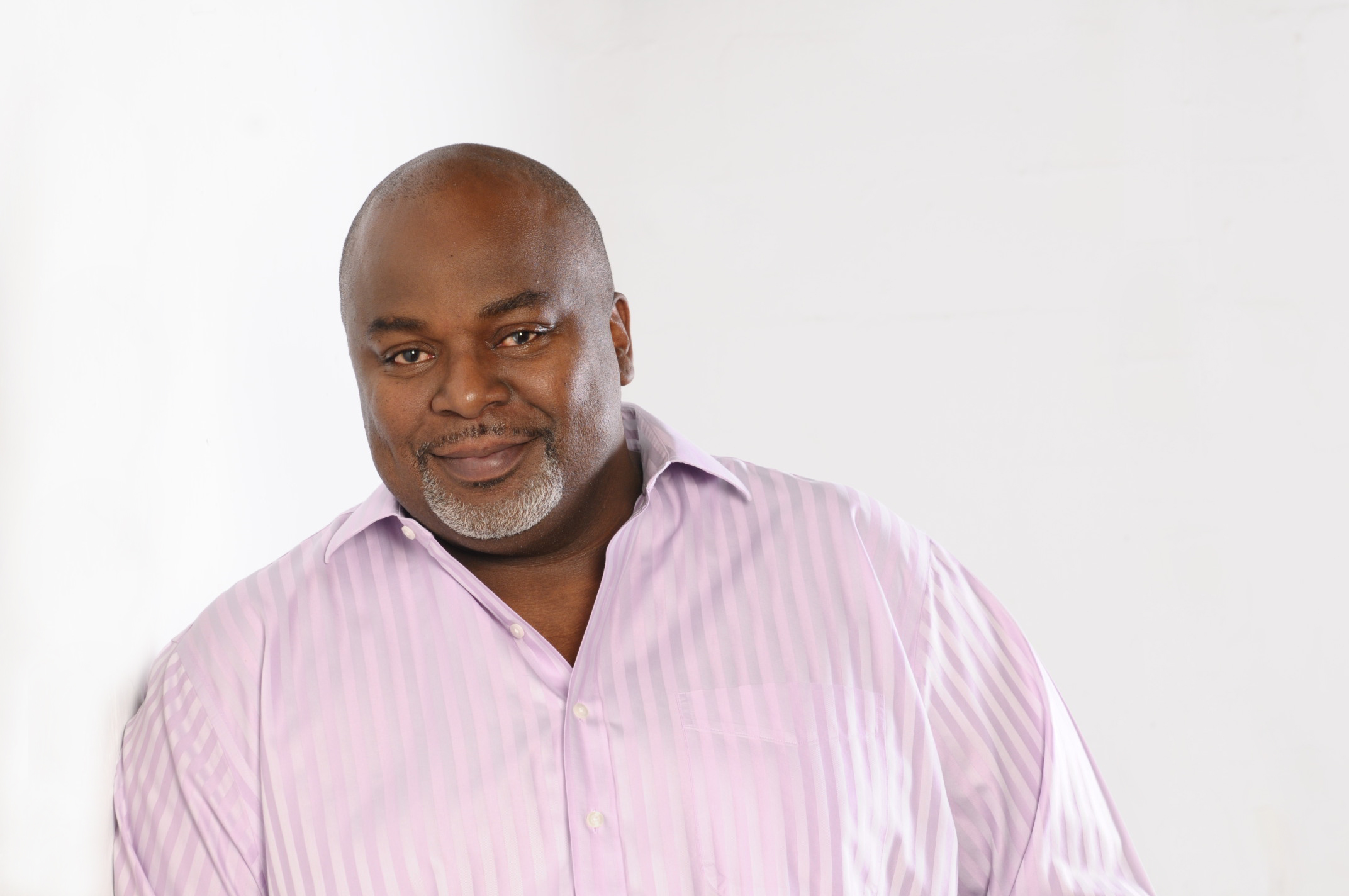During the spring before last, I hosted a presentation as part of the DFW Writer’s Conference entitled “Blogging for a Better World.” Weeks were spent preparing the slides, condensing their contents and deciding where to narrow the scope with such a nebulous topic. Although I consider myself an experienced writer, I felt uncomfortable with the stance of presuming to tell folks what to do. What I ultimately decided my lecture would cover was a truth that every attendee could relate to: “Every perspective matters.”
It was a nerve-wracking, yet rewarding experience: to my pleasant surprise, dozens of participants approached me afterward, thankful that I validated whatever type of niche writing they dabbled in—fan fiction, journaling, reality show commentary or whatever— and made them feel as if there were a point and an audience. “You made me want to finish a few drafts I was working on for a short story,” one told me. “I feel empowered now to share my own voice.”
That sentiment is what resonated to me when I bought and read the just-released Michelle Obama memoir, Becoming. By now, nearly everyone is familiar with the evolution of Michelle Robinson Obama, the Chicago native and former attorney who would meet and marry fellow lawyer Barack Obama, a community leader-turned-Senator-turned-President of the United States. But what might be less familiar are the forces that helped her evolve into the woman, wife and mother that she is known as today.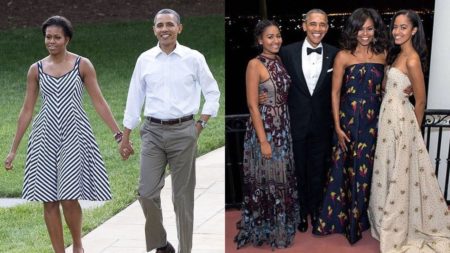
The former First Lady of the United States certainly provided candid, yet carefully-worded perspectives on her years in the White House, but what readers may find just as intriguing is learning about the ordinary aspects: We all carry memories of the family who raised us, the friends who championed us, the bittersweetness of losing a loved one or the first moment we met our future spouses (or babies). At least one time in our lives, all have experienced academic failure, career insecurity and moments of light and darkness in-between, Mrs. Obama included. The fact that the former First Lady is so open with hers provides both insight and awe.
It was brave for Mrs. Obama to pull back the curtain on her private struggles with fertility, for example, and detail her pangs of resentment toward her husband during the process, who was “doting and invested,” yet “his only actual duty was to show up at the doctor’s office and provide some sperm.
She also revealed the uglier sides of public life that she had no other option but to endure: “I’ve smiled for photos with people who call my husband horrible names on national television, but still wanted a framed keepsake for their mantel. I’ve heard about the swampy parts of the internet that question everything about me, right down to whether I’m a woman or a man. A sitting U.S. congressman has made fun of my butt. I’ve been hurt. I’ve been furious.” Some may question the point of such a purge, but others like myself understand the toxicity that arises from constantly being ‘othered’ and the hyper-vigilance required to function in a world as both black and female. 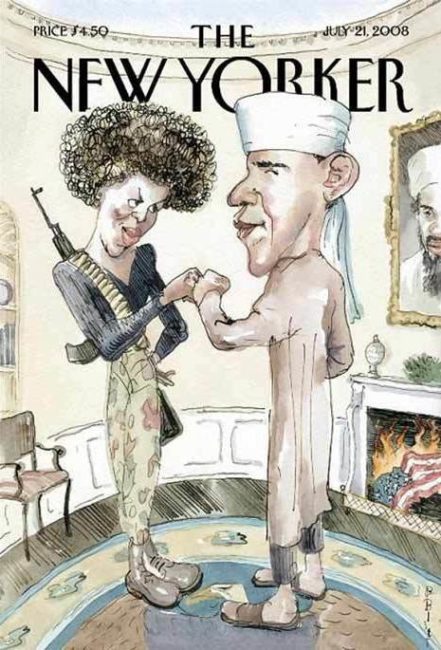
When Mrs. Obama was a guest earlier this week on Good Morning America, she explained what she hoped people learned through Becoming: “To find the truth of who they are, own it and define it,” Michelle said. “All of our stories matter.” It reminded me of that sunlit morning when I told an eager room of fellow writers the same truth: where we are today owes a debt to what we did and gives a hint of what we may become. And when experiences are shared, we learn, we examine, we compare and we relate. Eventually, we may even find common ground, whether it’s a quick chat over coffee, a podcast or even a column like this one.
Everyone has a story. What’s yours?

